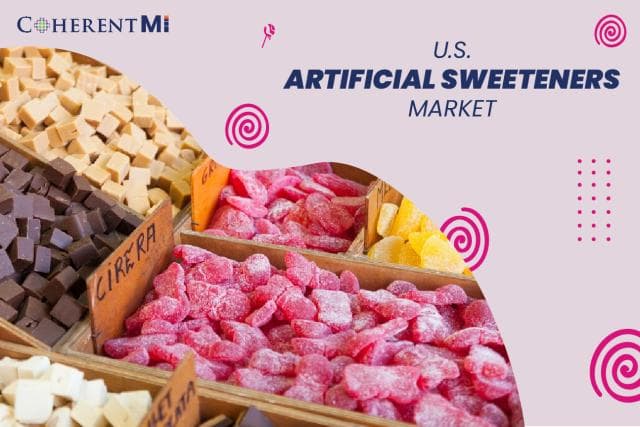Artificial sweeteners have seen a surge in popularity in America over the past few decades. These sugar substitutes are widely used in diet sodas, low-calorie desserts and snacks to provide sweetness without calories. However, their safety and long term effects continue to be debated by health experts. Let's take a closer look at the various artificial sweeteners used in the U.S. and the ongoing discussion around their impacts.
Top Artificial Sweeteners in the U.S. Market
There are five main artificial sweeteners approved by the FDA and commonly used in foods and beverages in America.
Aspartame (NutraSweet, Equal) was one of the first artificial sweeteners introduced in the U.S. in the 1980s. It is around 200 times sweeter than sugar but has zero calories. Aspartame is found in many diet sodas, chewing gums, desserts and tabletop sweeteners. However, there have been concerns raised about its safety with long term use.
Sucralose (Splenda) is another popular sugar substitute that was approved by the FDA in 1998. It is around 600 times sweeter than sugar but devoid of calories. Sucralose is heat stable and often preferred by manufacturers. It is commonly found in baked goods, chewing gums and tabletop sweeteners. While considered safe, some studies have linked it to increased cancer risks.
Acesulfame potassium (Sunett, Sweet One) was approved by the FDA in 1988. It is around 200 times sweeter than sugar but provide no calories. Used along with other sweeteners for an enhanced sweet taste, it is found in sodas, desserts, canned fruits and chewing gums. Its long term safety profile is still being researched.
Saccharin (Sweet'N Low) needs just small amounts to produce a sweet flavor. Discovered in 1879, it was one of the first artificial sweeteners to be commercialized. However, it fell out of favor in the late 1970s due to cancer concerns. Extensive review proved its safety and it was reinstated by the FDA. It continues to be used in tabletop sweeteners and certain foods.
Advantame is a recently developed sweetener approved by the FDA in 2014. It is around 20,000 times sweeter than sugar. Used along with other sweeteners, it is seen giving a sugar-like taste. Advantame is considered the safest so far but long term effects are still unknown given its recent introduction.
Ongoing Health Debate
While artificial sweeteners provide sweetness without calories, their impacts on health have been widely debated. Supporters argue these sugar substitutes help manage weight and reduce cavities when used to replace sugar. However, some studies have found links to increased weight gain, cancer risks and other metabolic disorders like diabetes with high intake.
A recent study in rats showed gut microbiome changes and glucose intolerance with daily consumption of commonly used sweeteners like saccharin, sucralose and aspartame. This suggests it may disrupt the body's ability to regulate blood sugar and energy levels. More research is still needed, but the findings have raised fresh concerns about long term safety.
The safety profile of these sweeteners also depends a lot on individual factors like existing health conditions, diet and lifestyle. While not conclusively dangerous for most, excessive intake provides no nutrients and regular consumption may not be advisable. Pregnant women and children are especially advised to limit or avoid artificial sweeteners.
With growing diabetes and obesity rates, demand for sugar substitutes continues rising steadily each year. However, natural sweeteners like stevia which are plant-derived may provide a healthier option. Ongoing research on both sides of the debate will be important in helping consumers make informed choices. Overall, moderate and mindful use of these sweeteners as part of a balanced diet seems most prudent based on current scientific evidence.
Future Outlook
As science on artificial sweeteners evolves, we are likely to see newer formulations emerging in the coming years that are safer and provide enhanced sweetness with fewer health trade-offs. Artificial intelligence and biotechnology are also playing a growing role in developing next-generation low-calorie sweeteners from natural sources that closely mimic the taste of sugar.
For now, most top health organizations believe existing FDA-approved artificial sweeteners are generally recognized as safe for the majority of people when consumed in moderation. However, more population level studies are needed to evaluate long term effects of chronic daily intake, impacts of mixtures, interactions with other foods and implications for different health demographics. The debate over the hazards versus benefits of artificial sweeteners is sure to continue as researchers gain deeper insights into their intricacies. As more data comes to light, consumers will be better placed to make informed choices around sugar substitutes.
